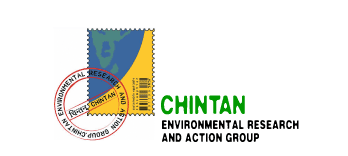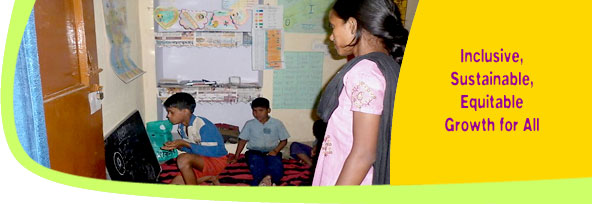|
|
|
FEEL FREE to download and use materials or information
on this website. Just let us know when
and where you are using it! |
No Child In TrashWe want to make sure that there is no Gen Next of wastepickers; that every wastepicker child and every child from a wastepicker family is able to reject a life in trash, even as an adult, if that is his or her choice. The No Child in Trash programme is rooted in the belief that a society that depends on children for recycling is a highly unjust and unsustainable one. Besides, what is green about recycling run on child labour? Why Wastepicker Children?Wastepicking is treated as one of the most lowly occupations in urban India. Consequently, those who pick waste are greatly discriminated against. Children who pick waste are unable to find any other means to support themselves and, often, their siblings. Walking on the road, picking up waste, they are bullied to clean up private homes, beaten by municipal sweepers and police personnel and abused by the general public, even sexually assaulted. Most people see them as greedy thieves, not as disadvantaged and poor children struggling to survive. A Chintan study found that 84% of these children are severely anaemic, have worms and suffer from recurring fevers and multiple injuries. Education is a particulatr challenge. Even if they do join a government school, many drop out, frequently because their government paid teachers discriminate against them. Learn more about the lives of wastepicker children, and Chintan's work among them, by clicking on this slide show by our intern Tanvi Bikhchandani. What Chintan DoesChintan works with wastepicker children in four areas in Delhi: Nizamuddin (where it runs Project Arman), Ghazipur landfill, R.K. Puram and Seemapuri. Our partners are Arjun Sharma, the Global Fund for Children, Asha for Education, New York and several individual donors. To understand our work better, see a short video report made for Project Arman here. The main features of our work in the No Child in Trash programme are:
|
SearchNo Child In Trash NewsletterAmong the hundreds who depend on Delhi's Ghazipur landfill for a living are 203 families of waste pickers. The community comprises mostly of migrants with near-zero support from the local authorities. They live in jhuggis (shanties) at the edge of the landfill with almost every able member of the family collecting or sorting waste. Earlier this year the slums at Ghazipur were gutted in a fire leaving very little to rescue. Chintan through its donation drives helped to restore and salvage as much as was possible. Children's Brochure
In the next 5 years, Chintan wants to reach out to at least 2500 children, or half of Delhi's wastepicker children. Come along! Be a part of this effort and give a child the childhood they'll remember with a smile. |



